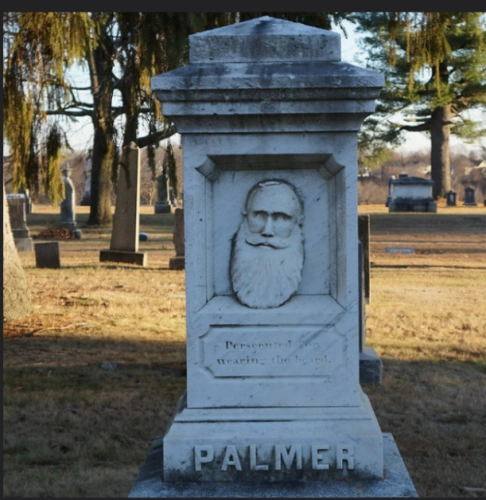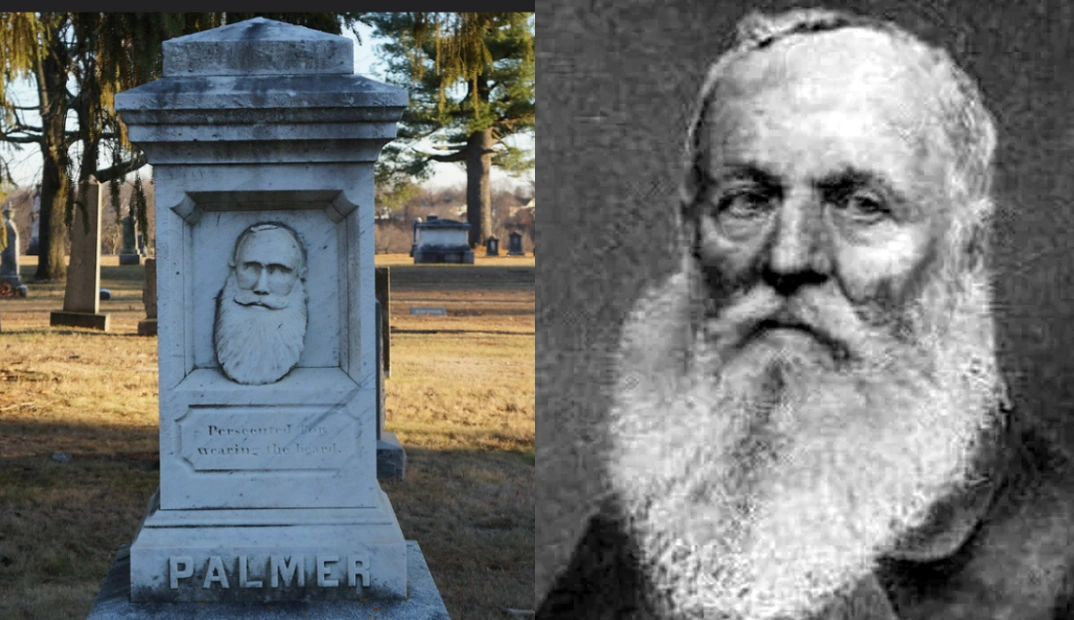In 1830, Joseph Palmer wore a long, flowing beard, considered such a fashion crime then that men attacked him and local authorities threw him in jail.
For more than a century, men had considered facial hair a fashion “don’t.” Since 1720, only Jewish-American men wore beards and moustaches. And Joseph Palmer.
Joseph Palmer was born in 1789 in Notown, a village between Leominster and Fitchburg, Mass., and fought in the War of 1812.
He was described as “an honest, kindly man and good citizen, deeply religious but tolerant, a man of many intellectual interests.”
People considered him eccentric. He wouldn’t serve rum to his hired farmhands because of his belief in temperance. And at the age of 40, he decided to emulate Moses and Jesus by growing a beard.
Joseph Palmer, Beard Wearer
People harassed and mocked him for wearing a beard. A minister told him he looked like the devil, and he replied, “Mr. Trask, are you not mistaken in your comparison of personages? I have never seen a picture of the ruler of the sulfurous regions with much of a beard, but if I remember correctly, Jesus wore a beard not unlike mine.”
One day in May 1830, Joseph Palmer went to a Fitchburg hotel to deliver meat and cucumbers. Four men approached him with scissors and razors and tried to cut off his beard. Palmer fought back, cutting two of the men’s legs with his jackknife. For defending himself, local authorities arrested him and charged him with unprovoked assault. Judge David Brigham ordered him to pay a $10 fine, $40 in court fees and a $700 bond. Palmer chose to go to the Worcester County Jail instead.
For the first few weeks in jail, he took sick. His jailers beat him, starved him and put him in solitary confinement for months. The other prisoners tried to cut off his beard.
But Joseph Palmer managed to make life difficult for his persecutors. He wrote letters to the Worcester County sheriff complaining of his ill treatment. Once he even sent him all the food he’d been given in a day to show how little he was fed. He also sent letters to the local newspapers, which picked them up.
His case began to embarrass the county, and several delegations came to the jail to ask him to pay his fine and leave. Judge David Brigham visited him with a letter from his mother, begging him to come home. Still he refused. Finally his jailers carried him out of the jail in a chair and set him on the sidewalk.
Fruitlands
The story doesn’t quite end there. Joseph Palmer began to advocate prison reform and an end to slavery. He attended a convention of philanthropists in Boston, where he met William Lloyd Garrison, Ralph Waldo Emerson and Bronson Alcott.

Farmhouse at Fruitlands
He followed Alcott, his daughter Louisa May Alcott and 12 others in founding the utopian community Fruitlands in Harvard, Mass. No one else had any farming experience, and he kept Fruitlands going as long as it did.
When the commune broke up seven months later, Joseph Palmer bought the land and farmed it. He and his wife Nancy welcomed the hoboes, writers and reformers who came to visit over the next 20 years. Neighbors called it ‘Old Palmer’s Home for Tramps.’
Joseph Palmer died in 1873, when beards had once again become fashionable.

Gravestone of Joseph Palmer
A bas-relief of Palmer and his beard are carved into his tombstone in the Evergreen Cemetery in Leominster, Mass. The inscription reads,
Persecuted for wearing the beard.
This story was updated in 2024. Photo of Fruitlands farmhouse by By victorgrigas – Own work, CC BY-SA 3.0, https://commons.wikimedia.org/w/index.php?curid=40800910. Photo of Palmer’s grave by romana klee via Flickr, CC by SA 2.0.



